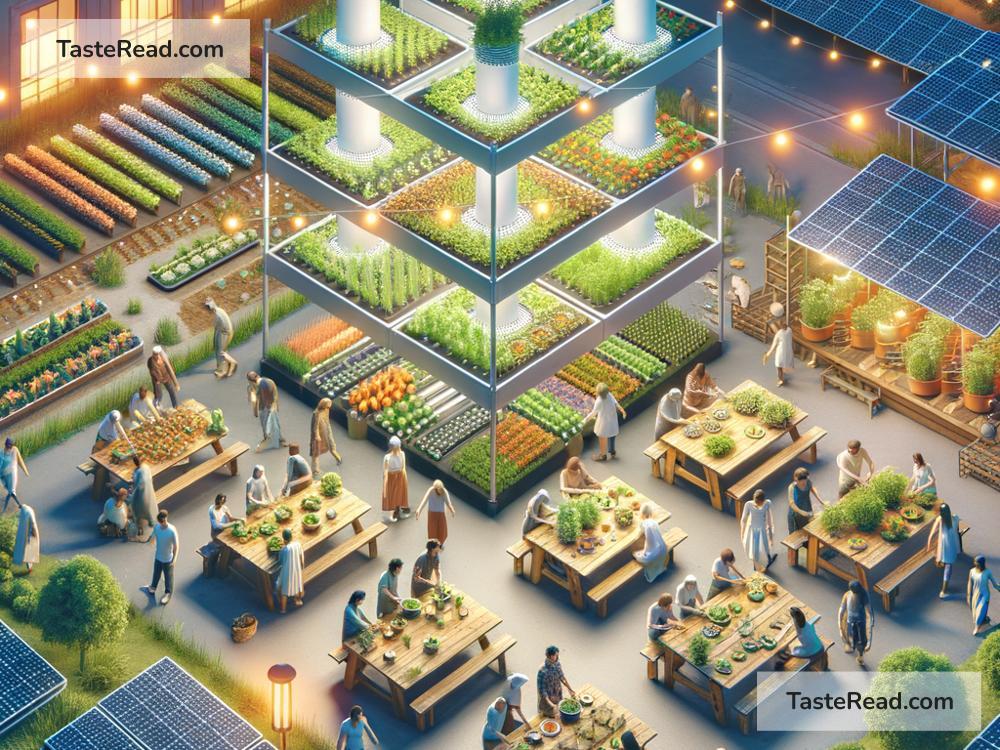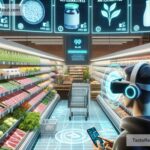The Future of Food and Community Transformation
Food is more than just what we eat — it shapes our communities, connects people, and is a reflection of the times we live in. As the world evolves, the future of food is set to play a major role in transforming how we live, interact, and care for each other. With advances in technology, growing concerns about environmental sustainability, and shifts in how communities function, the food systems of tomorrow will look very different from what we know today. Let’s explore how the future of food can transform communities in simple and meaningful ways.
Technology Changes How We Grow and Eat Food
In the future, food production is expected to rely heavily on new technologies. One exciting innovation is vertical farming, where crops are grown indoors in stacked layers. Vertical farms use less water, require minimal land, and can be set up in urban areas close to where people live. This means fresher food and reduced transportation costs, improving access to healthy produce for city dwellers.
Another technology changing food is lab-grown or “cultivated” meat. Scientists can now grow meat in labs without raising animals. This method produces meat that tastes the same but doesn’t involve slaughter or the environmental challenges of traditional farming, such as deforestation and greenhouse gas emissions. As lab-grown meat becomes more affordable, communities can access protein in ethical and eco-friendly ways.
Drones, robots, and artificial intelligence are also transforming farming practices. Smart machines can monitor crops, deliver fertilizers exactly where needed, and even harvest produce. With these tools, farmers save time, resources, and money. This innovation is especially important for small-scale farms, which are the backbone of many rural communities around the world.
Sustainability as a Priority
As concerns about climate change grow, food production must become more sustainable. The future of food will likely focus on eco-friendly approaches, such as regenerative farming. This method involves practices that restore soil health, reduce carbon emissions, and support biodiversity. Regenerative farming not only helps the planet but also builds stronger and healthier farming communities.
Moreover, reducing food waste will play a big role in future food systems. Today, a large amount of food is wasted — from farms to grocery stores to homes. Future communities will adopt creative solutions like composting systems, “ugly” produce markets, and apps that connect people to excess food from restaurants. Such efforts can prevent waste while ensuring everyone has access to meals.
Plant-based diets are also gaining popularity for reasons tied to sustainability. Many people are shifting toward diets focused on vegetables, fruits, grains, and plant-based proteins. These diets are not only healthier but also use fewer resources and create less pollution than animal-based diets. As this trend grows, plant-based food options will be more accessible, bringing communities together around healthier and greener choices.
Food as a Way to Strengthen Connections
In the future, food can play an even bigger role in building stronger communities. Local food systems — such as farmers’ markets, community gardens, and farm-to-table programs — will become common. These systems allow neighbors to buy and share fresh, locally grown food, keeping money in the local economy and fostering personal connections.
Community gardens, in particular, are excellent for transforming neighborhoods. People work together to grow fruits and vegetables, learning from one another and building friendships. These gardens also teach children where food comes from, inspiring future generations to care for the planet and their health.
Food hubs or cooperative kitchens may become central gathering places. Imagine a shared space where people can grow, cook, and eat together. Such spaces encourage people of all ages, cultures, and backgrounds to connect through food. Cooking classes, celebrations, and food-sharing events can bridge gaps between individuals, creating stronger bonds and a sense of belonging.
Innovation to Combat Food Insecurity
A growing focus on food equity is shaping the future. Communities worldwide face food insecurity, meaning many people struggle to get enough nutritious food. Technology and innovation offer new ways to address this challenge.
For example, hydroponics — a method of growing plants in water instead of soil — allows food to be grown anywhere, even in urban areas where land is limited. Mobile markets and delivery systems can make healthy food accessible to remote or underserved areas. Digital tools, like apps, can connect people in need with organizations providing free meals or discounted groceries.
When communities prioritize equity, everyone benefits. Schools, for instance, can provide free lunches made from fresh, local foods, ensuring all children have the nutrition they need to grow and succeed. Food banks can partner with local farms to distribute high-quality produce. Such efforts create more inclusive and caring communities.
Looking Ahead
As food systems evolve, they have the power to transform the way we interact, live, and care for one another. The future of food isn’t just about innovation — it’s about bringing people together, protecting the planet, and ensuring everyone has access to nourishment. Whether through new technologies, sustainable practices, or community-focused initiatives, food will remain at the heart of building stronger and more connected societies.
It’s exciting to think about the possibilities ahead. Imagine vibrant neighborhoods with rooftop gardens, smart farms that use cutting-edge tools, and community kitchens buzzing with activity. Food is not just something that fuels our bodies; it will be an avenue for social change, environmental well-being, and human connection. The choices we make today will shape how food transforms our communities tomorrow.
Let’s embrace the journey and work together to create a future where food nourishes not only our health but also our hearts and the world around us.


